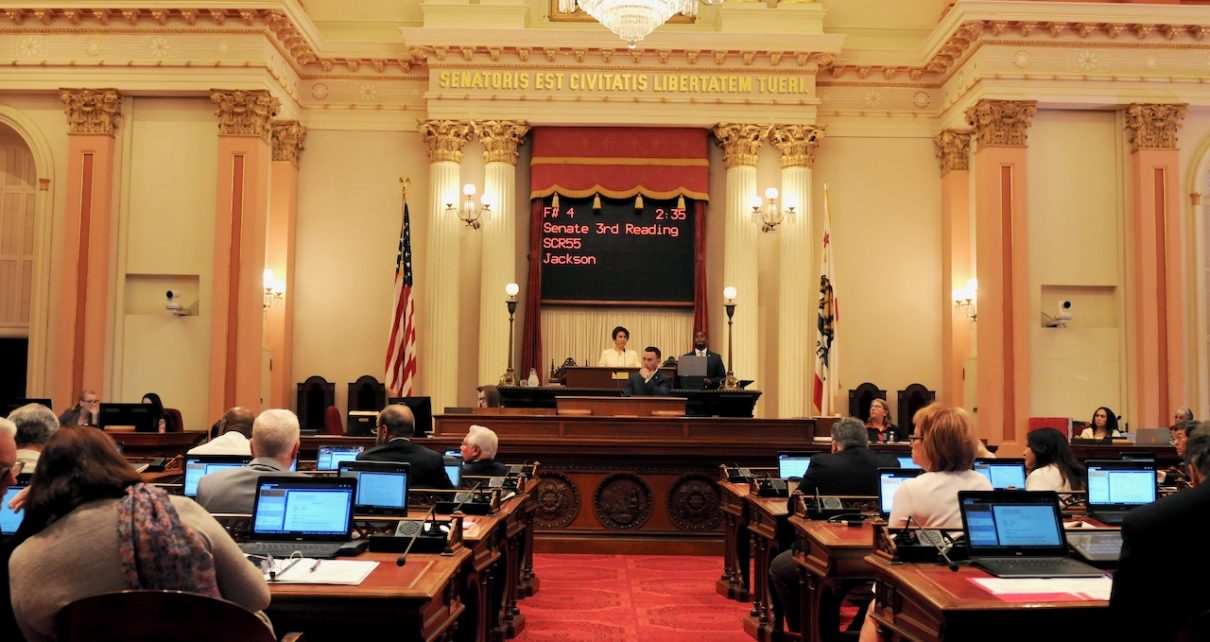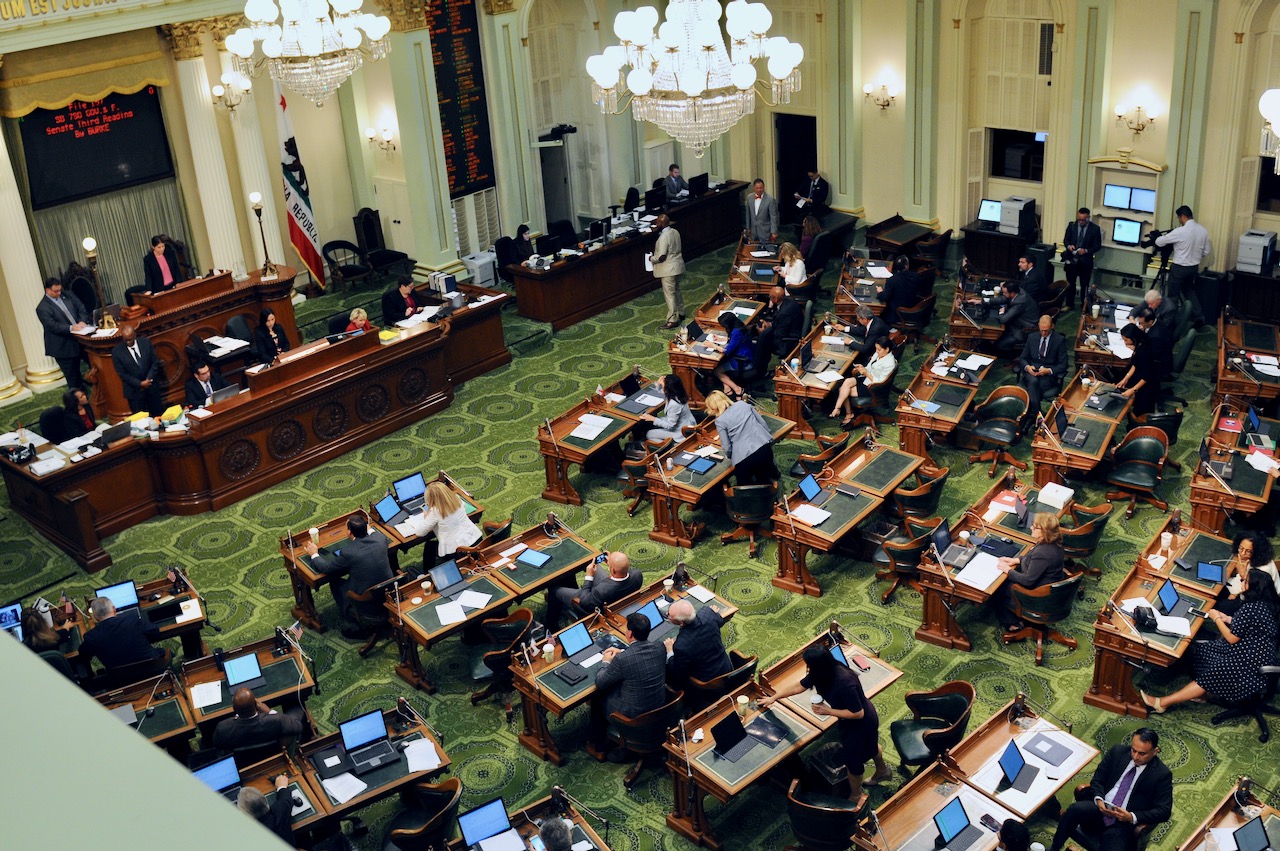
California State Senate. (Photo: Kevin Sanders for California Globe)
Which Legislative Rules Apply / Do Not Apply to Special Session Bills?
The California Legislature will convene a soon-to-be-proclaimed special (or extraordinary) session on December 5, 2022
By Chris Micheli, November 29, 2022 4:36 pm
As the California Legislature plans to convene a soon-to-be-proclaimed special (or extraordinary) session on December 5, 2022, the following is a list of most rules that special session bills are or are not subject to:
- A special session bill is limited to the subject matter of the Governor’s proclamation, pursuant to Article IV, Section 3(b) of the state Constitution.
- A special session bill is not subject to the 30-day in print rule, pursuant to Article IV, Section 8(a), because it only applies to regular session bills.
- A special session bill must be read by its title on 3 days in each house, unless dispensed with by a 2/3 vote of the house’s membership, pursuant to Article IV, Section 8(b)(1).
- A special session bill must comply with the 72 hours in print rule for the final form of the bill before being voted upon, pursuant to Article IV, Section 8(b)(2), unless dispensed with due to a state of emergency being proclaimed.
- A special session bill must pass each house with at least a majority vote, pursuant to Article IV, Section 8(b)(3).
- A special session bill takes effect on the 91st day after the adjournment of the special session, pursuant to Article IV, Section 8(c)(1), unless the bill takes effect immediately due to being an urgency statute, a statute calling an election, a statute providing a tax levy, or a statute providing for usual current expenses of the state (budget-related bill), pursuant to Section 8(d).
- A special session bill must comply with the single subject rule, pursuant to Article IV, Section 9.
- A special session bill cannot be a special statute unless a general statute cannot be made applicable, pursuant to Article IV, Section 16.
- A special session bill must have a title that conveys an accurate idea of the contents of the bill, pursuant to Joint Rule 7.
- A special session bill, if it amends more than one section of an existing law, must contain a separate section of each existing law section that is amended, pursuant to Joint Rule 8.
- A special session bill may not be introduced unless it is contained in a Legislative Counsel cover and accompanied by a Legislative Counsel’s Digest, and shows the changes in the existing law that are proposed by the bill, pursuant to Joint Rule 8.5.
- A special session bill is subject to rereferral to a fiscal committee if one of four tests are met, pursuant to Joint Rule 10.5.
- A special session bill is not subject to the legislative calendar during the regular session, pursuant to Joint Rule 51.
- A special session bill is not subject to the deadline for introducing bills, pursuant to Joint Rule 54.
- A special session bill is not subject to the 30-day waiting period, pursuant to Joint Rule 55.
- A special session bill is not subject to the deadlines applicable to regular session bills, pursuant to Joint Rule 61.
- A special session bill is not subject to the committee procedures applicable to regular session bills, including the 4-day File notice, pursuant to Joint Rule 62(a).
Finally, a normal course of business is for the two houses of the California Legislature to adopt a concurrent resolution that applies the Joint Rules of the Senate and Assembly from the Regular Session to apply to the special session, which specified exceptions.
Latest posts by Chris Micheli (see all)
- Proration of Estate Taxes - February 28, 2026
- Corporations Commissioner Powers - February 27, 2026
- Death Deeds in California - February 27, 2026



